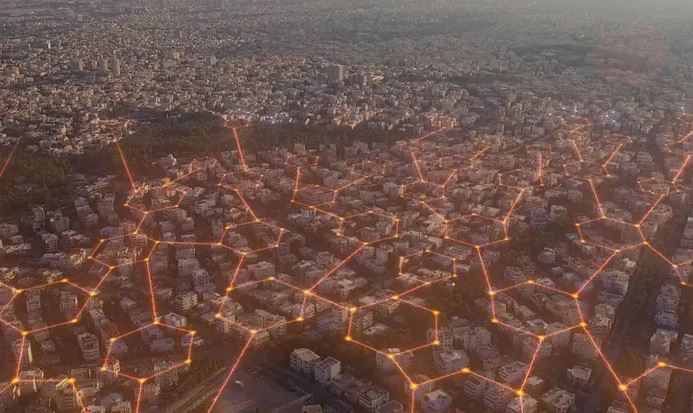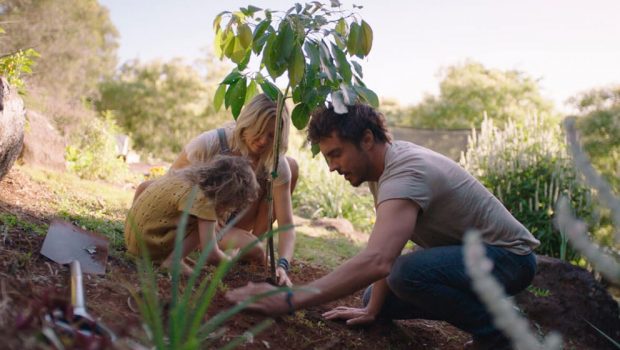2040 – Film Review
Reviewed by Damien Straker on the 14th of May 2019
Madman presents a film by Damon Gameau
Produced by Nick Batzias
Starring Damon Gameau, Velvet Gameau, Zoe Gameau, Eva Lazzaro and Davini Malcolm
Editing by Ryan Wade Howard
Rating: G
Running Time: 92 minutes
Release Date: the 23rd of May 2019
Social: #2040Film
Website: www.whatsyour2040.com
Cheer up. Damon Gameau (That Sugar Film, 2014) is here to help. Rather than constructing another documentary merely outlining the planet’s climate woes, the Australian filmmaker has taken a different approach. He has pitched 2040 as a ‘visual letter’ to his four-year-old daughter, Velvet. His intention is to outline what the planet could resemble in the year 2040 if people, including himself and his wife, Zoe, take corrective measures to address the damage that is crippling the world’s environment. It is a hopeful and highly optimistic documentary, not aimed at cynics, but the volume of information over its brief running time leaves a lasting impression.
The film opens with an important thematic question. ‘What would the world look like in 2040 if we embrace the best that exists?’ Gameau asks. From this point, Gameau outlines a series of practices that could benefit the planet and the world in which his daughter will live. He travels to Bangladesh to unveil the use of solar panels and alternative energy. Rather than merely showing what exists, he uses the cinematic form, specifically overhead shots and computer graphics, to show the possibility of a series of interconnecting solar grids in the future. He says, ‘they could reinvent the way we distribute energy worldwide’ and then dramatises how in the future Velvet (played by actress Eva Lazzaro) could store and sell energy using microgrids. He argues microgrids would also have financial benefits too.

Furthermore, Gameau believes in reinventing the state of major city areas. He emphasises how US cars are responsible for twenty percent of emissions and then outlines the necessity for on-demand driverless vehicles. Ride sharing and community transport are attributed to lowering car numbers, while converting existing vehicles to electric cars is predicted to keep fossil fuels in the ground. Gameau is cheery but also a realist. He understands that industry and big money are working to suppress information about environmental awareness. He draws a viable comparison between the tobacco industry and fake data and climate denial. Evidently, he has strong ideas about renewal but is aware of and realistic about the political and monetary forces attempting to suppress change.

2040 strongly emphasises agriculture as a form of environmental renewal. It continues the memorable points made in That Sugar Film about the necessity of changing one’s eating habits by reducing the consumption of red meat. Though one child that is interviewed hilariously wishes that they could eat hot dogs every day. Additionally, there is a lot of interesting information about soil. Those are not words I expected to write anytime soon. However, sequestering carbon into the soil can make it healthier, reduce hardness and make it easier for water and plants to penetrate. As a result of sequestering, water is retained and nutrients are created. Farming is not limited to the land either. Gameau explores farming in the ocean and reveals the complex ways that seaweed is used to regenerate ocean life and then harvested. This information is related to marine permaculture, which is said to be a major contributor to fixing problems with the ocean life and the crisis of climate change.

What gives 2040 a beating heart is how Gameau does not lose sight of his personal objective. He is outlining a roadmap for Velvet and one of the most touching ways that he accomplishes this is towards the end of the film is by stressing the necessity for the empowerment of girls and women. He warns that 65 million girls do not complete their education but will still produce at least five of their own children. He underlines the need for gender equality, slower population growth and redistributing money away from the fossil fuels industry to end the cycle of poverty. The way he concludes this film on an emotional note is at once deeply personal and universally applicable, which shows the maturity of his filmmaking. His project is a slickly layered with information, facts and sharp humour but one realises that there are personal stakes too. It is one of the reasons why 2040 is an accomplished documentary for smart audiences who are willing to be informed.
Summary: 2040 is an accomplished documentary for smart audiences who are willing to be informed.







